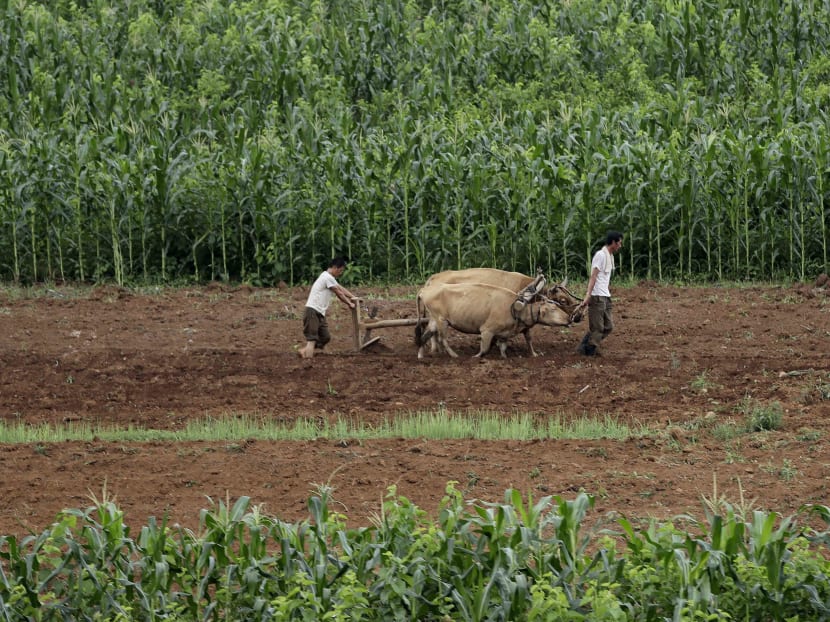North Korea faces worst drought since 2001
SEOUL — North Korea is facing its worst drought since 2001, adding the threat of a food crisis to the long list of problems affecting the sanction-hit nation.
SEOUL — North Korea is facing its worst drought since 2001, adding the threat of a food crisis to the long list of problems affecting the sanction-hit nation.
According to the United Nations’s Food and Agriculture Organisation (FAO), the hermit kingdom is facing hefty cereal shortfalls after the country’s crop harvest was hit by drought.
Rainfall from April to June in the country’s main farmland areas has been well below the long-term average, disrupting planting and stunting production of crops such as rice, potatoes and maize that form the staple diet of many North Koreans.
The FAO estimated that North Korea’s early-season crop production was down 30 per cent to 310,000 tonnes from the same time period last year.
“Seasonal rainfall in main cereal-producing areas have been below 2001, when cereal production dropped to the unprecedented level of only two million tonnes, causing a sharp deterioration in food security conditions for a large part of the population,” said Mr Vincent Martin, FAO representative in China and North Korea.
Although July rains have provided some relief, they came too late to boost production of main-season crops to be harvested in October and November. This is expected to damage North Korea’s food supply and heighten its need to import cereals, the FAO cautioned.
However, external food aid to the country has been hampered by tough international sanctions — punishment for Pyongyang’s insistence on developing its nuclear and missiles programmes. The international community is ramping up pressure on Pyongyang, with the United States preparing to impose new financial curbs after the hermit state conducted its first inter-continental ballistic missile test earlier this month.
Other sanctions include China banning coal imports from North Korea in February, following the assassination in Malaysia of the older brother of Kim Jong-un who had been living under Chinese protection.
However, such sanctions appear to have had little immediate impact on the North Korean economy, which last year grew at its fastest pace in 17 years.
Gross domestic product rose 3.9 per cent in 2016 from the previous year, the Bank of Korea said on Friday (July 21). Although the drought is expected to hurt the closed North Korean economy, analysts said the country was unlikely to slide back into the devastating famine that killed hundreds of thousands in the mid-1990s, citing its burgeoning private agriculture sector.
The economy is still controlled by the state but gradual market-based reforms have been introduced, allowing farmers to keep more of their produce, resulting in increased production.
North Korean defectors and visitors to the isolated country have reported an uptick in the standard of living that defies western perceptions about the Communist country.
South Korea’s new president, Mr Moon Jae-in, is trying to engage North Korea in dialogue. Seoul has proposed military talks with Pyongyang, but North Korea has so far ignored the offer. FINANCIAL TIMES







